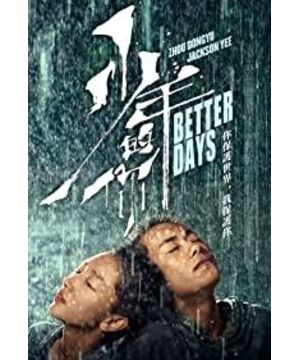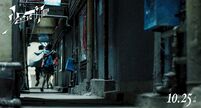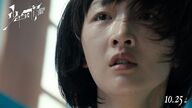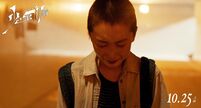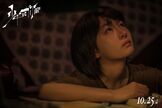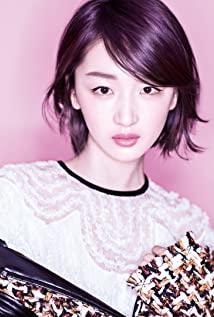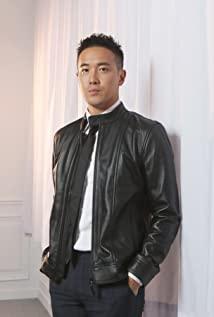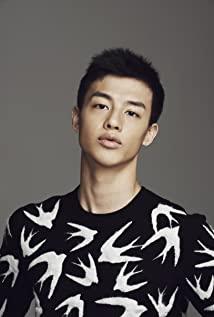You, young man, are a rare good show.
At the beginning of this year, "You Are Young" and "Over Spring" were shortlisted for the new generation unit of this year's Berlin Film Festival. As a result, the fates were very different: "Over the Spring" was successfully screened in Berlin, and was released in domestic theaters in mid-March. And "Youth of You", like a number of films in the first half of this year, was withdrawn from the exhibition and has an indefinite release date.
It wasn't until a few days ago that the unusual, near-airborne release was confirmed.
Zeng Guoxiang, who entered the industry after graduating from high school at the age of 18, has been playing various supporting roles in various Hong Kong-produced films. It was not until ten years later, that is, the film "Isabella" directed by Peng Haoxiang in 2006, that he first participated in the creation of film screenwriting. Then after another ten years, there are "July and An Sheng" and this year's "Youth of You". Even with the background of the son of a star, his growth process has still experienced a typical big wave in the industry.
Since "July and Ansheng", Zeng Guoxiang began to explore a set of methods for presenting such "cruel stories of youth". The story of "Youth as a Teenager" is actually quite a bizarre romance, with the shadow of "Walking in the White Night" (especially the first meeting of the male and female protagonists, I still feel that it was handled bluntly in retrospect). However, Zeng Guoxiang's obvious improvement in the level of director has brought a very exciting viewing experience.
The most obvious is the more mature application and processing of the audio-visual elements of the space scene. And it incorporates a lot of Peng Haoxiang's clever handling, as well as various design elements used in Japanese contemporary movies.
The deliberately inserted camera positions in the editing can clearly read the main creator's design ideas. For example, school balconies sealed with anti-theft nets and various surveillance cameras on the road. As well as the long staircase formed by the undulating terrain of Chongqing, as the long journey on the way to class in the play, a series of details are combined into a visual metaphor for the plot of the two protagonists. Even the bell of the get out of class is easily used as an environmental sound effect that depicts the psychological state of the characters.
The chasing scene of the bullying trio going to the hostess' house to make trouble, presented in a Hong Kong-style horror movie, is very similar to Peng Haoxiang's cleverness.
The detention center met the pure expression scene with no dialogue for a full minute. The camera shot the faces superimposed on the glass, which obviously imitated Kurosawa's "Heaven and Hell", or Hirokazu-eda's "The Third Suspect". Shooting method (PS: Personally, I feel that this scene has music added, instead of purely relying on performance and photography editing methods to present it, but it is not perfect, which is a pity).
The control of casting and performance is even better. It is not easy for Zhou Dongyu to control the span from 17 years old to 25 years old, no need to go into details. It is a very smart and tailor-made choice to let Yi Yang Qianxi play an 18-year-old bad boy at the age of 18. His smile in the scene of recognizing people even reminded me of Yosuke Kubozuka from "GO! Zhou Ye, a newcomer who plays the villain Wei Lai, looks like a spring and summer at first glance.
"Young You" is still not perfect. You can still see the swing between the director's narrative ambitions and the censorship's creative constraints from the word cards at the beginning and the end. And the whole film is a little too hard and a lot of plot reversals (like "July and Ansheng"). But it's still worth a look. After all, it is very rare to have such high-level genre films in mainland theaters.
PS:
Photographer Yu Jingping, during the filming of this film in Chongqing in August last year, her gay Lu Kaitong, who suffered from depression, fell from a building in her Hong Kong home and died. The ending song "fly" was composed by Lu Kaitong. It is not easy to complete such a high-level image despite such a change.
The colorist of the film is David Rivero from Spain who has been active in China in recent years. At the end of the year, he should be busy with "Chinese Women's Volleyball", which will be released on the first day of the new year next year. Looking forward to it.
The expectation for Zeng Guoxiang's next work may be that he can make a play with Cantonese as the main language. After all, the two masterpieces "July and Ansheng" and "Youth of You" are both in the context of Mandarin.
View more about Better Days reviews


